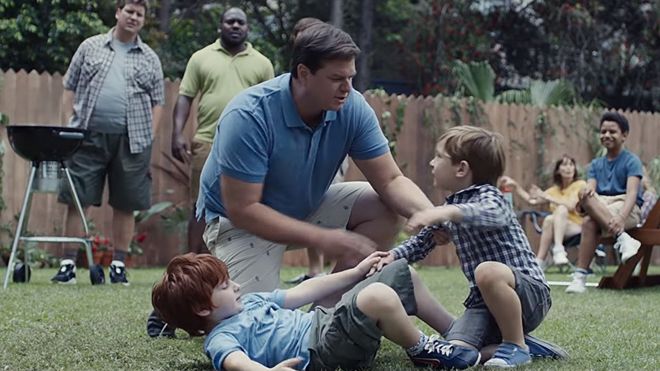Gillette Ad
The "We Believe: The Best Men Can Be" is a, as described by the publisher, "short film" by the shaving razor company, Gillette. It is an advertisement created to appeal to the need to nurture. The need to nurture is used to appeal to parental instincts. This suggests that the target audience must be parents. This is narrowed even further to fathers, but can also be applied to male figures that can act as father figures to boys, due to the fact the advertisement primarily focuses on using male 'characters', such as fathers, male teenagers, and male children, in their advertisement. Additionally, the ad is targeted to men, as it covers the social issue of "toxic masculinity" and of "sexual harassment conducted by men". The purpose of this advertisement is to not only raise awareness of the current epidemic of, as mentioned previously, "toxic masculinity", but also hope to solve the situation by telling the viewer that "men need to hold other men accountable". To emphasize and strengthen their argument, the advertisement takes use of pathos and ethos. The quote that was mentioned earlier, "men need to hold other men accountable" was said by Terry Crews, a well-known actor, and activist, giving the illusion/idea that if this well-respected man is saying this, then it must be followed. Other than Terry Crews, the advertisement also uses other authoritative figures such as news anchors and politicians. The advertisement utilizes Pathos, the most. A few of uses of Pathos are in the scene where a teen is running away from other teens, as they pass by a crying child and mother. This scene utilizes the need for nurture: this is because the scene is supposed to present bullying and how it is predominantly a male-dominated industry. This, of course, would lead to any parent wanting to minimize and reduce the prominence of bullying. This is emphasized by another scene involving many fathers and a pair of kids. In the scene, the two kids are fighting with each other, a pair of fathers would then say the well-known phrase "boys will be boys", which is then followed by a handful of other men saying the phrase. This phrase is a representation of this so-called, "toxic masculinity", which is used to express the idea that any mischevious behavior is seen as a common idea for boys. Later, one of the fathers would stop the "fighting" and tell the boys that this is how they are supposed to act. So, the advertisement is explicit does what they want the audience to do.

Comments
Post a Comment